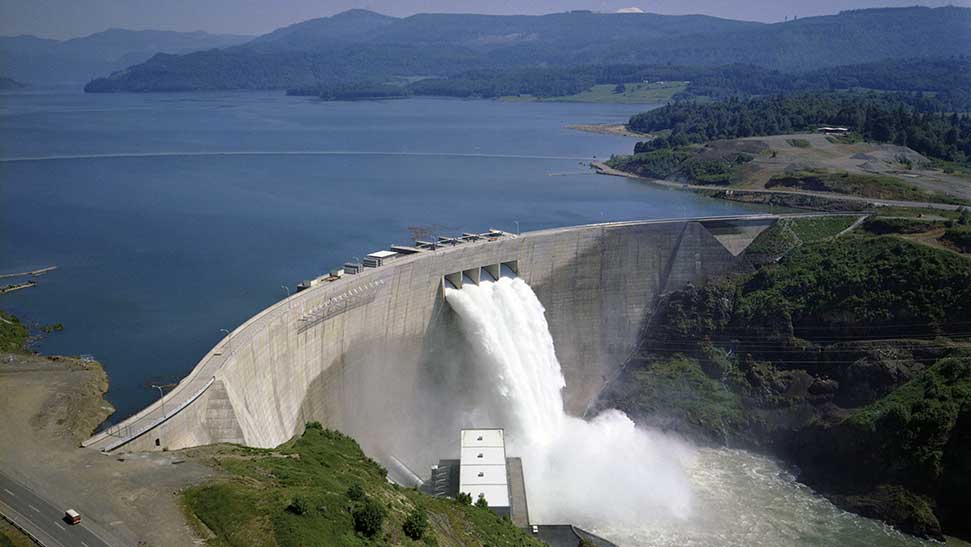 |
| Image: https://goo.gl/images/bVyJne |
As the world around us rapidly deteriorates, one of the most pressing questions we face comes not from how humans should respond to environmental issues, but more specifically, why we should even care about the results. This problem within the ethics of environmentalism, while not widely discussed in the public sphere, holds a key position in realizing the efforts necessary to make the world a better place.
Take, for example, the damming of a river for hydroelectric power. While this construction may provide clean energy and allow for a greater population to thrive in a particular area, it could also cause drastic problems for those living downstream. Such an obstruction “blocks fish migrations … traps sediments, [transforms] upstream of the dam to an artificial slack-water reservoir habitat … [and causes] changes in chemical composition, dissolved oxygen levels and the physical properties of a reservoir” (internationalrivers.org). A project which sought to benefit others, while well meaning, could ultimately cause more harm than good in the long-term.
According to the Stanford Encyclopedia of Philosophy,
In the literature on environmental ethics the distinction between instrumental value and intrinsic value … has been of considerable importance. The former is the value of things as means to further some other ends, whereas the latter is the value of things as ends in themselves regardless of whether they are also useful as means to other ends.
The means of environmentalism should not take greater precedence over the end results of these methods. In damming a river, as in the above example, the instrumental value may provide a strong argument for the benefits of building a dam, but the intrinsic value may make such an effort unwise. Despite the fatalistic assumption of the accidental nature of evolution which allows the negative effects on the environment to be viewed as natural results, a greater effort should take place to understand the long term ramifications of taking such drastic measures.
Ultimately, the answer to why stems from one’s personal convictions of ethics and moral living. The goal of environmentalism must seek to create change which benefits everyone, not only a select few who seem “most important” at the moment. Keeping in mind these incongruities, discovering the why of conservation efforts remains of precedence, and the answer lies in one’s own worldview and understanding of humanity’s place in the universe.
Because of this, one must consider the ultimate outcomes of each and every effort in conservationism. Why we should care, who should care, and what potential consequences may result should all take equal weight, and anything less will only result in greater destruction. Without an accurate view of the ethics of environmentalism, even humanity’s best efforts may result in the complete loss the world we so desperately need.
- Taylor Lemoine
Works Cited
Brennan, Andrew, and Yeuk-Sze Lo. “Environmental Ethics.” Stanford Encyclopedia of Philosophy, Stanford University, 3 June 2002, plato.stanford.edu/entries/ethics- environmental/.
“Environmental Impacts of Dams.” International Rivers, www.internationalrivers.org/ environmental-impacts-of-dams.
No comments:
Post a Comment